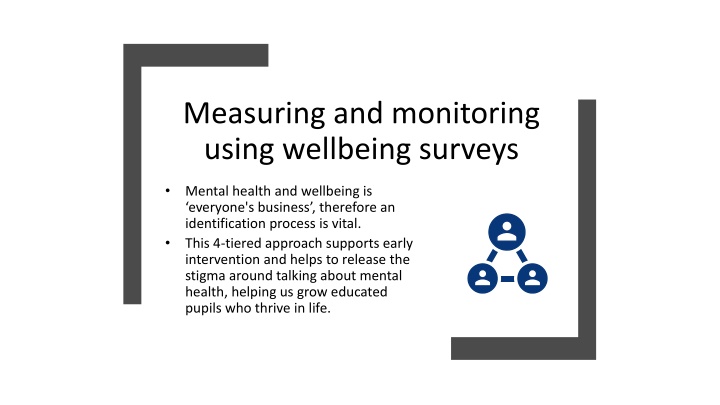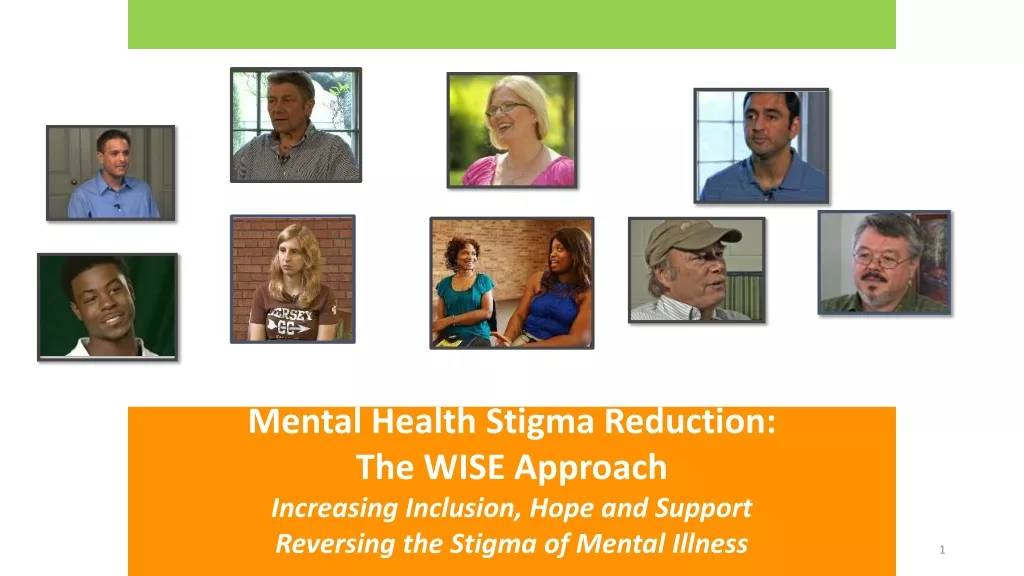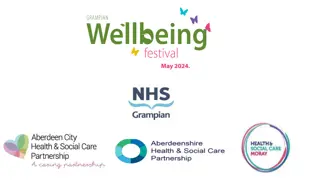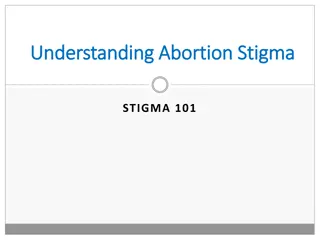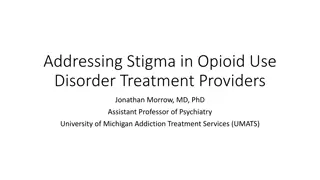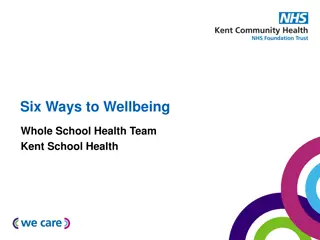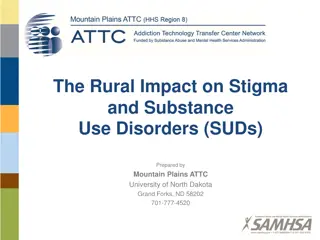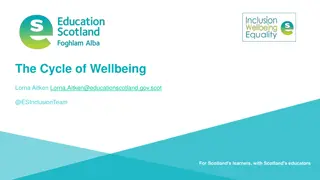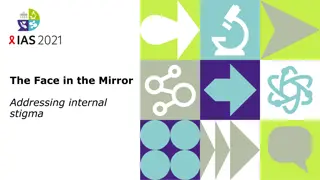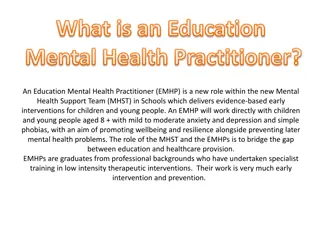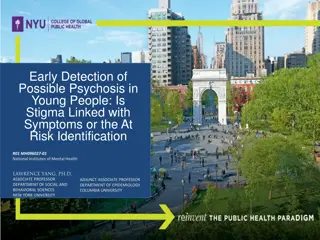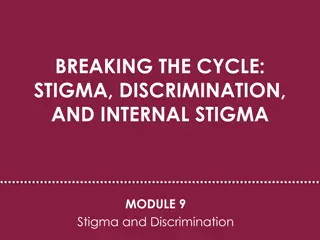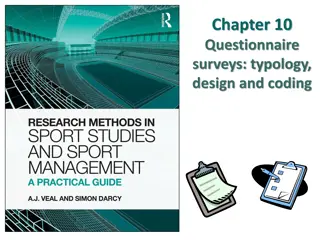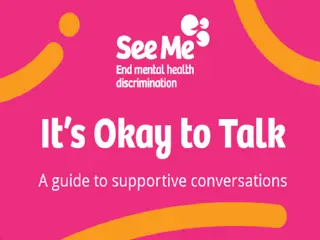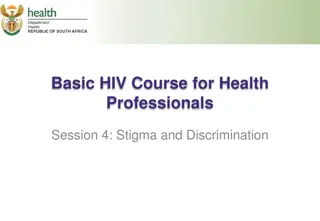Wellbeing Surveys for Mental Health: Early Intervention & Stigma Reduction
Implementing a 4-tiered approach with wellbeing surveys to monitor mental health in schools. The process involves identification, social & emotional questionnaires, class nominations, sociographs, and pupil wellbeing profiles. Early intervention is key to providing support to students, releasing stigma, and promoting positive mental health outcomes. Various intervention tiers offer support ranging from in-class strategies to specialist referrals, ensuring a comprehensive approach to student wellbeing.
Download Presentation

Please find below an Image/Link to download the presentation.
The content on the website is provided AS IS for your information and personal use only. It may not be sold, licensed, or shared on other websites without obtaining consent from the author.If you encounter any issues during the download, it is possible that the publisher has removed the file from their server.
You are allowed to download the files provided on this website for personal or commercial use, subject to the condition that they are used lawfully. All files are the property of their respective owners.
The content on the website is provided AS IS for your information and personal use only. It may not be sold, licensed, or shared on other websites without obtaining consent from the author.
E N D
Presentation Transcript
Measuring and monitoring using wellbeing surveys Mental health and wellbeing is everyone's business , therefore an identification process is vital. This 4-tiered approach supports early intervention and helps to release the stigma around talking about mental health, helping us grow educated pupils who thrive in life.
Sample of questions asked in wellbeing surveys My Class My Feelings This 'sociometric' questionnaire asks pupils to nominate the peers that they: This questionnaire concerns pupils' social and emotional experiences. Pupils are asked to respond to a total of 43 questions covering: most like least like see as kind and cooperative see as disruptive see as shy see as starting fights see as leaders. positive social experiences at school negative social experiences at school anger depressive symptoms and sadness anxiety negative emotions (anger, sadness, anxiety) at school negative emotions at home self-perceptions.
Class nominations (example) Pupil Code Most liked Least liked Cooperative Disruptive Shy Fights Good Leader 1 0 0 3 0 3 0 1 2 6 0 3 0 0 2 0 3 1 2 9 0 2 0 14 4 6 3 3 3 0 5 2 5 4 1 1 4 0 20 0 6 2 3 4 1 0 6 7 7 0 5 0 4 1 0 0 8 3 3 3 4 0 5 0 9 0 6 0 13 0 9 1 10 0 6 0 0 1 0 0
Whole-class sociograph Green: popular pupils White: no concerns Orange: controversial pupils Grey: neglected pupils Red: rejected pupils
Pupil wellbeing profiles Code Name Social profile Emotional profile Red: receive immediate intervention 1 Child 1 Rejected 0, 13. Disruptive 10. Starts fights 5. Did not nominate any friends. Low positive, high negative experience. Sad and angry. Negative school experience. 2 Child 2 No concerns. No concerns. Orange: receive early help support 3 Child 3 No concerns. Low positive, high negative. 4 Child 4 Rejected 1, 13. No reciprocal relationships. Disruptive 10. Starts fights 4. Anxious, slightly depressive, slightly angry. Green: receive preventative support 5 Child 5 Controversial 5, 7. Disruptive 5. Starts fights 5. No concerns. 6 Child 6 No concerns. Low positive, high negative. Angry, anxious, depressive, negative school experience. No concerns. 7 Child 7 No concerns.
Tiered intervention approach for pupil wellbeing Tiered support in place following early identification Tier 1: in-class support with quality first teaching and preventative support. Mental health champions and wellbeing ambassadors. Tier 2: low-level intervention draw and talk, 1:1 mentoring, therapy dog, chill out club, Family Matters for parents, personalised behavior support plans. Tier 3: therapeutic support, play therapy and family therapy. Tier 4: specialist support, referral to outside services e.g. CAMHS.
List of interventions PSHE lessons Circle time Draw and talk sessions Therapeutic play sessions Self-esteem groups Wellbeing ambassadors Tailored PSHE lessons Bespoke staff training program Life skills group Emotional literacy support assistant Sensory circuit sessions Chill out club Anti-stigma activities and events Wellbeing days Yoga and mindfulness Mental health champions Bespoke attachment support programs Lola leaders support via our school therapy dog
